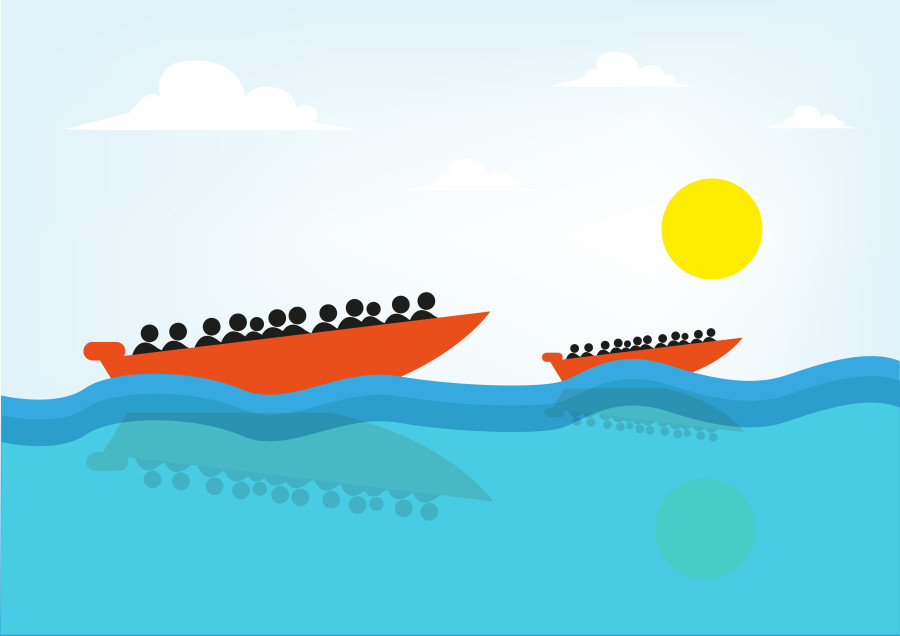The contradiction of European action
The European Union is a self-proclaimed example of unity. Recently, however, it has been an example of shame and cowardice. In recent news, scores of people from nations in chaos—such as Libya, Syria, and Somalia—have been leaving in rudimentary boats, fleeing from war or persecution, and seeking a better life.
Since World War II, the EU has claimed it will never deny the entrance of persecuted individuals. It is a bold statement, made solely for attention and media pleasing. Since 2014, the European Union has proven itself incompetent when presented with refugees. It has no stable solution to the problem and has even demonstrated callousness, such as when officials suggested allowing a boat filled with refugees to sink as a message to other refugees that no one can illegally enter Europe without facing consequences. Needless to say, this stirred up a lot of criticism, such as The Economist, which described these actions as “wrong, as well as morally repugnant.”
The truth about these refugees is that there is no way to keep them out, something the EU seems to have not realized. Refugees act out of desperation: even the faintest of hope for a safe passage will make them roll the dice of fate and join 90 people in a 20-person boat.
However, the EU may argue that they do invest money to rescue refugees from death in the Mediterranean Sea, but a recent article explains that the EU has actually granted only about one-third as much funding for maritime rescues and one-tenth as much manpower as they did last year. Sadly, the death toll this year has been ten times greater than last year.
In quite a contradictory statement from a supposedly united continent, the EU has a policy that states, “refugees are the responsibility of the country where they turn up.” It is truly appalling to see this tragedy still occurring, where helping people marginalized in their own countries is still dealt with as a debatable issue. It is understandable that taking care of refugees, granting citizenship, and coordinating the process is a burdensome task. However, the debate on whether or not to save human lives is indisputable. It is shameful how European bureaucratic actions differ from their initial statement of aid.
The solution Europe is slowly reaching, one that should have been implemented a long time ago, is to evenly distribute the refugees throughout Europe so that one country is not faced with the burden of helping these refugees alone. By allowing more money to be spent on search-and-rescue missions and granting every refugee an European passport, the EU would live up to its initial bold statement about unity, representing itself through actions rather than words.
Source: www.economist.com

This is Pedro’s third year in The Talon. He believes that being a senior grants him the power to boss people around and show off his authoritarian nature....











